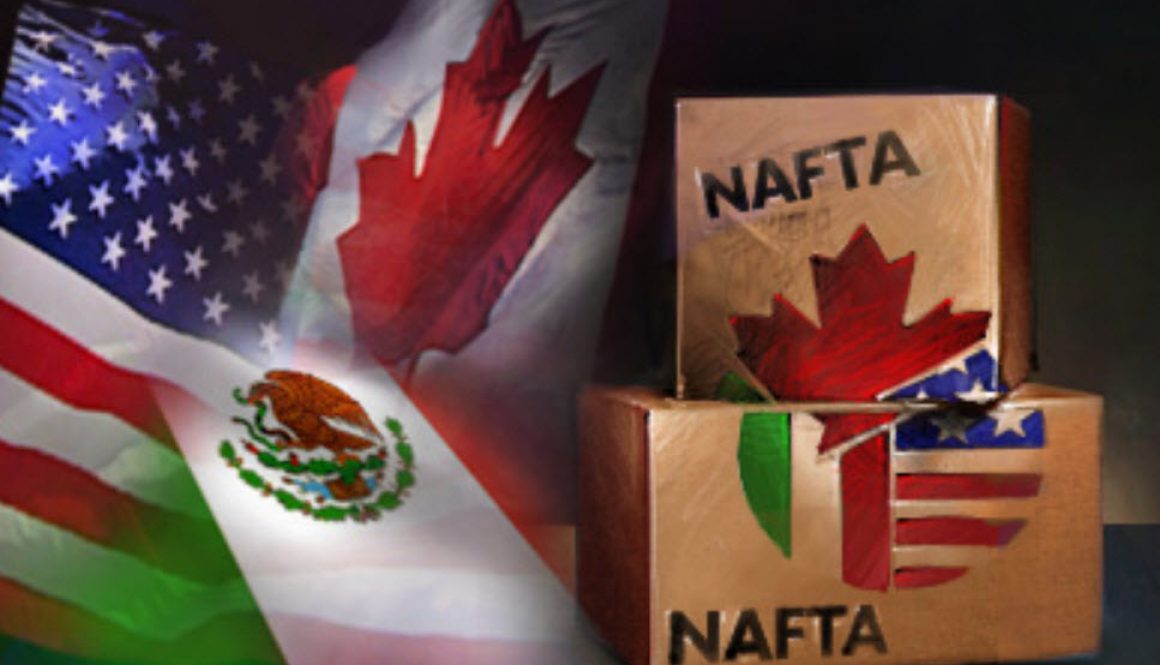NAFTA Negotiations Review Shows Progress
NAFTA Negotiations Review
After Donald Trump’s announcement that he wants to uproot NAFTA, many feared that years of mutually beneficial free trade would come to an end. However, he has said little about what changes he wants to make to the agreement. This lack of information has created much uncertainty about NAFTA’s fate, as well as the future of U.S. companies currently doing business in Mexico. In this NAFTA negotiations review, we will explore evidence that is leading many to believe that little will change and NAFTA will remain largely intact.
The first clue is the cautionary approach that Trump’s administration has taken when discussing NAFTA. While Trump has used inflammatory language to express his stance against NAFTA, his administration has been considerably more moderate. This suggests that they may not abandon the agreement as readily as many people initially believed. However, there is some division among them. Some of the administration believe that protectionism is the best route to take, while others are in favor of continuing free trade.
If protectionism wins, it will hurt two major U.S. industries: sugar and natural gas. American natural gas powers more than a quarter of Mexico’s electricity. Because of free trade, American energy companies are booming, especially in Texas where fear over changes to NAFTA is increasing. If natural gas negotiations go poorly, it will be unfavorable for both sides. There would be a severe loss of income for American companies and a devastating energy shortage in Mexico. The seriousness of this potential outcome has spurred Mexico to begin looking for alternative power sources in case that their current source is cut off.
However, in the extreme case of a trade war, energy companies in Texas would be the first to fight it. The market is about supply and demand, and currently, the production of natural gas in the United States exceeds its demand. Without Mexico, one of the gas industry’s biggest customers, gas prices across the U.S. would plummet. Similarly, natural gas is a valuable resource for Mexico, generating electricity for their major cities and providing power to citizens and manufacturers. It is crucial, as we see in this NAFTA negotiations review, that the gas trade between Mexico and the U.S. continue if each nation is to be successful.
The sugar industry is also at the forefront of multiple trade issues between the U.S. and Mexico. But the repercussions of said issues will quickly spread into international trade markets if not handled well. Furthermore, the handling of sugar negotiations will set a precedent for the ongoing NAFTA negotiations and emphasize the importance of keeping the agreement together.
If sugar costs go up, then it will negatively affect food industry jobs. Other American manufacturers rely upon sugar for production of their goods, and many of these companies are already moving their business to other countries to reduce costs. Again, it is favorable for both Mexico and the U.S. that they form an agreement that guarantees that the sugar industry will continue to thrive. Farms across Mexico employ 450,000 workers during harvest season, and an increase in import taxes on sugar would cost thousands of Americans and Mexicans their jobs.
Another key player in this NAFTA negotiations review is Canada. They are an important trading partner, importing items such as softwood lumber and dairy products. However, Prime Minister Justin Trudeau of Canada stands firm that Canada does not need a “Plan B. He believes that NAFTA has too many economic benefits for the U.S. for it to fall apart.
The results of this NAFTA negotiations review are clear: the economic benefits that the agreement affords to all countries involved are too numerous for it to change drastically. Without free trade, American businesses would suffer. The U.S. would lose valuable resources, opportunities, and trading credibility with nations outside of North America. For these reasons, it is unlikely that the pact will undergo significant changes in the immediate future.
For a series of articles on NAFTA negotiations the reader is invited to visit http://tecma.com where you will find detailed articles in our blog.




